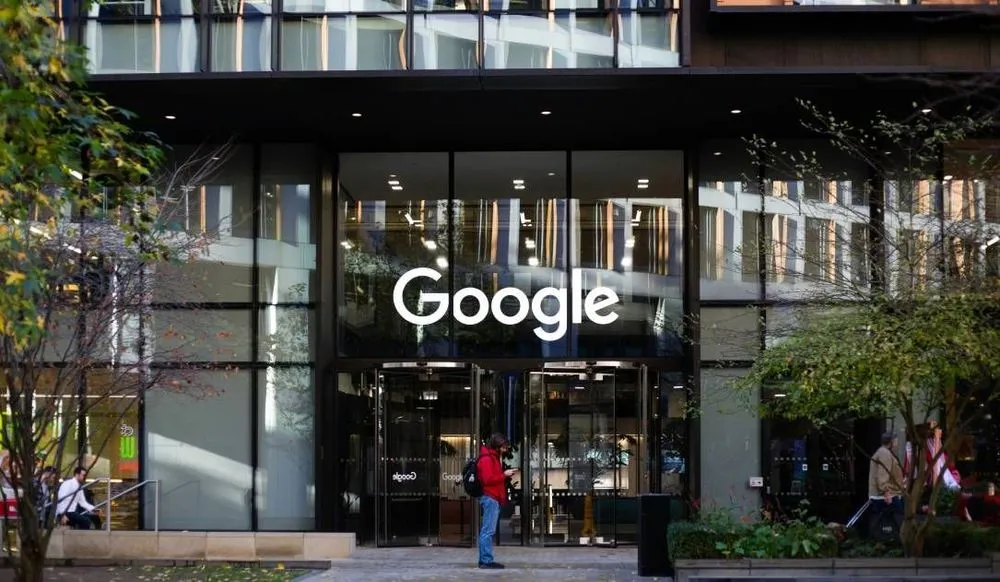New Google program targeting children with AI chatbot may violate FTC privacy rules
Google’s recent launch of a program targeting its AI-powered Gemini chatbot at children under age 13 has prompted outrage from privacy and children’s rights advocates who on Wednesday told the Federal Trade Commission (FTC) the effort appears to violate the agency’s privacy rule protecting children online.
The tech giant recently sent emails to parents signed up for Family Link — which allows them to create Gmail accounts for their children and offers other special services — advising them that their children can engage with the chatbot on homework or in conversation to “create stories, songs, and poetry.”
Children with parent-controlled Google accounts will be able to independently access the chatbot, according to an email to parents seen by Recorded Future News. The email said that Google will notify parents if their children do access the chatbot, allowing them to disable access at that point.
In a scathing letter to the Federal Trade Commission, the Electronic Privacy Information Center (EPIC) and the children’s advocacy group Fairplay condemned Google for alerting parents to the change “via an email that indicates the company will not be requiring verifiable parental consent before engaging in this new form of data collection and use.”
In addition to indicating that parents will need to opt out of the program, not in, Google acknowledged in the missive that parents should be aware that children “may encounter content you don’t want them to see” and that “Gemini can make mistakes.”
“Let your children know not to enter sensitive or personal info in Gemini,” the email says, cautioning parents to encourage children to “think critically” about interactions with the chatbot.
The New York Times first reported the new program and the contents of the email.
An online Google explainer of the program details how exactly parents can opt out of having their children use Gemini.
“If you turn off Gemini Apps, your child won’t be able to sign in to the app on any Android device or Gemini on the web,” the explainer says.
Google declined to comment.
New FTC Chair Andrew Ferguson has expressed special concern about protecting children’s online privacy and recently allowed an updated version of the Children’s Online Privacy Protection Act (COPPA), which was finalized under his predecessor Lina Khan, to go into effect on or around June 23.
Ferguson on Thursday told Congress he is aware that lawmakers have been “especially solicitous” about children’s privacy online. He made the comments in written testimony submitted to the House Appropriations Committee’s Subcommittee on Financial Services and General Government.
Noting that the collection, aggregation, disclosure and retention of children’s personal data “poses real dangers” to them, Ferguson said the COPPA Rule applies to website operators and online services with “actual knowledge” of such collection from children under age 13.
He also noted that the COPPA rule mandates that providers obtain “verifiable parental consent” before gathering, using or sharing data belonging to children in that age range.
“Some of the Commission’s most valuable work has been the enforcement of COPPA and the COPPA Rule,” Ferguson wrote in his testimony. “For that same reason, protecting children and teens online is similarly of paramount importance” to the new administration.
In addition to asking the FTC to investigate Google’s new program, EPIC and Fairplay wrote a letter to Google CEO Sundar Pichai asking the company to put its rollout of Gemini to children under age 13 on hold, arguing that generative AI and chatbots can harm children’s mental health and social development.
Google has said children’s data will not be used to train AI, but the advocacy organizations told Pichai that Google also has “not identified additional safeguards to ensure that it would not misuse data collected through Gemini for other internal purposes or share it with third parties.”
Suzanne Smalley
is a reporter covering digital privacy, surveillance technologies and cybersecurity policy for The Record. She was previously a cybersecurity reporter at CyberScoop. Earlier in her career Suzanne covered the Boston Police Department for the Boston Globe and two presidential campaign cycles for Newsweek. She lives in Washington with her husband and three children.



